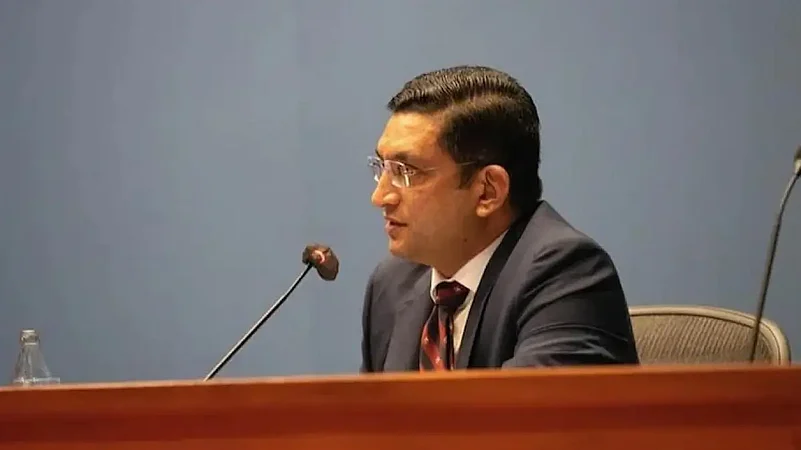Indian High Commissioner to Sri Lanka Gopal Baglay on Tuesday called on Sri Lanka's new Foreign Minister Ali Sabry and discussed ways to deepen the multi-faceted bilateral partnership between the two nations.
Sabry on Monday assumed duties as the Minister of Foreign Affairs amidst the worst crisis in the history of Sri Lanka in seven decades leading to a shortage of essential items such as fuel, food and medicines.
Conveying greetings and wishes to Sabry for taking charge as the Minister of Foreign Affairs, Baglay and Sabry touched on "ways and means to deepen the bilateral partnership" in diverse range of areas pertaining to the multi-faceted bilateral relationship, particularly in trade, investment, and people to people ties, the Indian High Commission tweeted.
Sabry in a statement while assuming charge as the minister said he looked forward to delivering on the mandate of the ministry to steer forward Sri Lanka's foreign relations, taking the domestic compulsions too into consideration.
Sabry was appointed the Finance Minister of the debt-ridden country after the resignation of former President Gotabaya Rajapaksa's brother Basil Rajapaksa due to a mass protest against the Rajapaksa family, who is widely blamed for the current crisis, holding the positions of power in the bankrupt country.
He led the Sri Lankan delegation for the recent negotiations with the International Monetary Fund (IMF) and the World Bank in Washington DC to overcome the crisis facing the country.
Sri Lanka, a country of 22 million people, is under the grip of an unprecedented economic turmoil, the worst in seven decades, leaving millions struggling to buy food, medicine, fuel and other essentials. Sri Lanka’s total foreign debt stands at USD 51 billion.
Sri Lanka needs about USD 5 billion in the next six months to cover basic necessities for its 22 million people, who have been struggling with long queues, worsening shortages and power cuts.
The country is currently holding talks with the IMF and other foreign countries on financial aid to tide over the current economic crisis.
(with inputs from PTI)


























